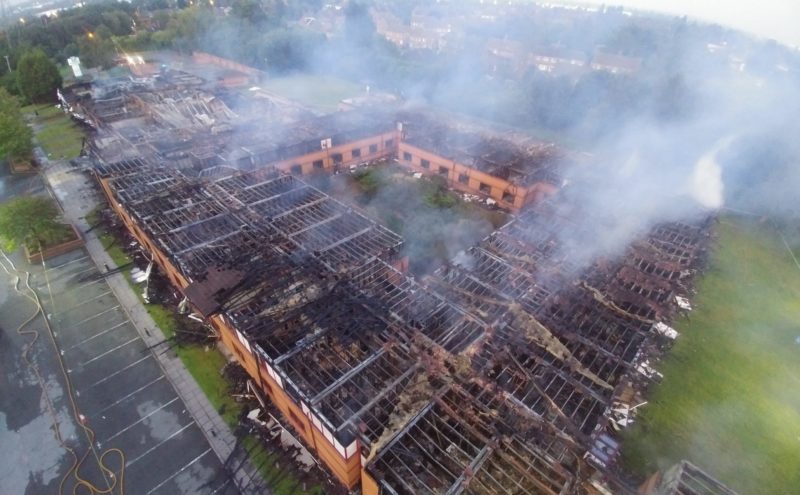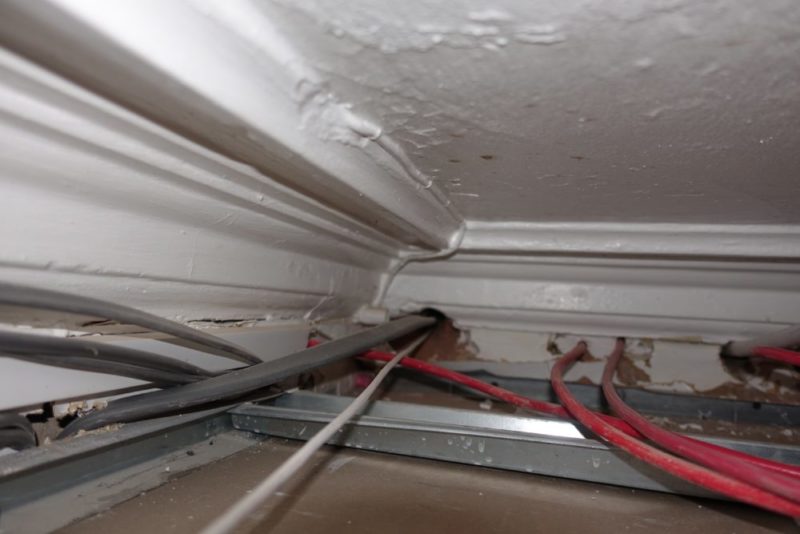The recent spate of UK hotel fires – most recently at a Holiday Inn in Walsall – raises the issue of whether or not all hotels should be fitted with sprinklers. Alan Cox, Fire-Safety Consultant and contributor for our sister site, IFSEC Global, explains more.

(Photo: @WalsallFire)
There’s little doubt in my mind that our previous reliance on fire compartmentation to halt the spread of fire is based on outdated thinking. Many of the hotels that suffered fires recently were totally destroyed – so what has gone wrong?
Fire compartmentation
In theory, if fire compartmentation is properly installed and in the right locations, fire should be contained within the area it started. But in many buildings I look at, this is not the case and structural fire breaks are often breached or omitted.
Clearly, fire-resisting doorsets are getting more attention than ever, but again, in most buildings I visit they are far below standard – and in some cases the doors have just been removed.
So in my view, if these failings are not being identified in Fire Risk Assessments (FRAs) or by inspections carried out by Fire and Rescue Services (FRS), we need to consider the installation of sprinklers if we’re to halt these very costly and tragic incidents that are happening all too often.

Holes in fire compartment wall above a false ceiling
Fire risk assessments
There’s very little doubt in my mind that FRAs are generally not giving enough attention to the spread of fire between compartments. And it’s of little use having fire-resisting doorsets that are up to standard if the compartment around or above the door is not up to a similar standard. So perhaps we should extend the inspection of these items of fire safety to the fire compartment.
There is also great reliance on automatic fire detection systems being a main feature of the fire safety plan. Again, when I visit hotels it never fails to surprise me how many systems are poorly installed and designed, with detectors poorly positioned or absent from many key areas.
Fire safety enforcement

Holes in fire compartment wall above a false ceiling
With the cuts being made to FRS budgets and the resulting poor levels of enforcement it’s not surprising that so many problems are going undetected for considerable periods of time. In one hotel I visited recently where fire safety standards were very poor, the FRS admitted they had not visited for seven years – and of course a lot can change in seven years.
Are sprinklers the answer?
If, as a country, we’re not prepared to improve how we protect lives and property, then we must consider sprinklers as a viable alternative. But it will need a concerted effort by all stakeholders to pressure the government into changing the law.
We must also consider the recent Ocado incident. The fire that destroyed the online supermarket’s automated warehouse in February may have cast doubt on the performance of sprinklers and fire detection.
So we also need to improve how we install and interact with these systems and how we truly learn from their failures. This will need a more open, honest and transparent approach from the FRS, the insurance industry and all other stakeholders.
This article was originally published on IFSEC Global.
Fire Safety in 2023 eBook
SHP's sister site, IFSEC Insider has released its annual Fire Safety Report for 2023, keeping you up to date with the biggest news and prosecution stories from around the industry.
Chapters include important updates such as the Fire Safety (England) Regulations 2022 and an overview of the new British Standard for the digital management of fire safety information.
Plus, explore the growing risks of lithium-ion battery fires and hear from experts in disability evacuation and social housing.




